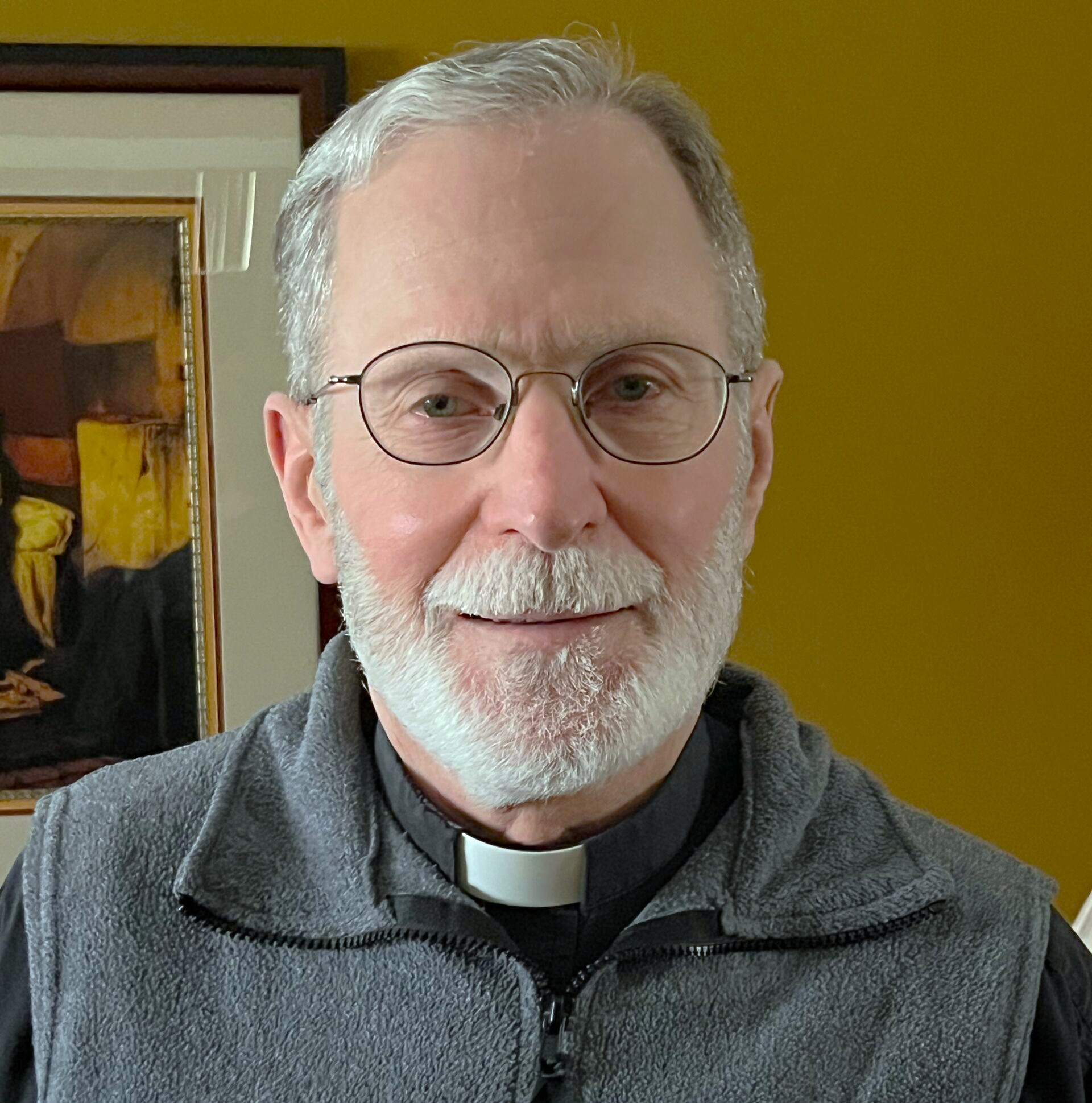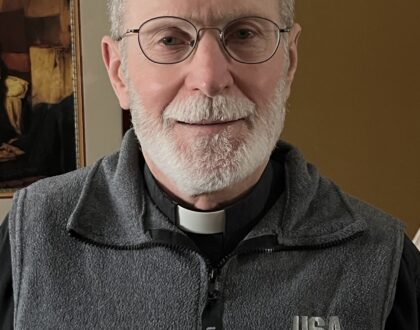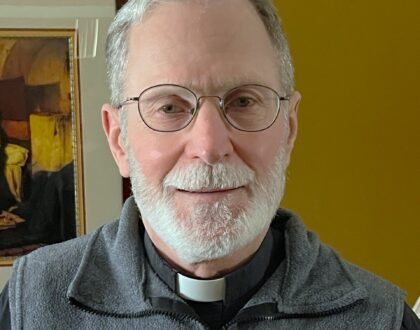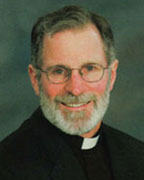Homily, April 13, 2025 Palm Sunday

From The Pastor
Palm Sunday begins the pinnacle of the Christian year with glorious hosannas as Jesus enters the city of Jerusalem. People who encountered the power and grace of the Lord Jesus through his preaching, healing, and compassionate mercy are filled with hope that the time of a Messianic reign was about to begin. But did they believe in him? They were awed, inspired, confused, and uplifted by the words and works of Jesus. But did all this inspiration touch their souls with a realized awakening of truth?
The question must be asked due to the inclination of human nature to quickly shift from a stance of hero to villain. Jesus was acclaimed as Lord and Messiah with rousing shouts of “Hosanna, Hosanna, blessed is He who comes in the name of the Lord.” We might ask, ‘What was Jesus thinking and feeling as he rode into Jerusalem to such shouts of acclamation and praise?
What were the hopes that filled the heart of Jesus? It is hard to know how Jesus felt in this hour of acclamation. Emotionally, Jesus is aware that his life is coming to its end. The hope Jesus holds, I suggest, must have been vastly different than the hopes of a jubilant crowd in anticipation of a new reign of earthly authority. Throughout his life, Jesus could read the minds and hearts of those who sought his attention for miraculous favors, mercy, and freedom from pain. Now as his hour of ‘glory’ approaches, what is it that Jesus hopes for and what inner strength does he have to persevere on the path he faces.
The heart and hope of Jesus is in the communion of love he shares with the Father. Jesus is deeply aware of his identity as the beloved of the Father. This love means everything to him. It is not only his deepest identity that confirms his self-love in the image of the Father, it is also his mission and passion to accomplish the Father’s will.
In the revelry of joyous acclamations, consider what lies ahead for Jesus in the coming days. Likely the next day, Jesus is having dinner with various religious leaders when a woman enters the house. With her tears she washes the feet of Jesus and dries them with her tears, then anoints them with perfumed oil. This personal act of love must have deeply touched Jesus in anticipation of the suffering to come. It must have given him great comfort and hope. This woman was a believer much more than an excited follower along the way.
As the week progresses, Jesus prepares himself and his closest friends for his final meal. The Passover meal is prepared as ritual custom dictates. Only Jesus knows that he himself will soon become the pascal sacrifice in the giving of his Body and Blood. The mood is thick with love and legacy. Jesus, the King and Teacher, performs the work of a slave by washing the feet of his disciples. He is teaching the disciples to follow his example. It is a profound act of humility in surrendered love. Later, making the meaning of the meal painfully clear, taking bread, Jesus breaks the bread and says, “This is my Body that will be given for you.” Taking a cup of wine, he says: “This cup is the cup of my Blood poured out for you. Do this in memory of me.”
The Eucharist is the living reality of the death of Jesus ever present in the sacrifice of the Mass. In Jesus, God humbles himself to be our slave in the service of our redemption. The hope of Jesus is the fire of his love that we humble ourselves to bow low in acceptance of the gift so perfectly given for us. More than a meal with friends, this was a supper of Divine self-emptying for every person in the world.
After the meal, through the night and into the morning, the event of our salvation finds Jesus arrested and scourged. Good Friday opens with a fake trial to accuse the Son of God of sedition against the Roman state. In fear and submission, the crowd is insighted to scream, “crucify him.” The deception of evil and the lie of sin has its way. Some cheer while others leave beating their breasts in shameful sorrow.
The virtue of Christian hope is most hope in the darkest hour when all seems lost. In the darkest times hope is most fully realized. Jesus has made known his identity by fulfilling his mission in what looks like utter failure. Yet he is not without hope. His final words reveal his hope and deepest desire, “Father, forgive them. They do not know what they are doing.”
We ourselves should not and cannot be without hope. In the darkest of our times when hope may seem empty, in power and truth Jesus remains. Believe in the Eucharist, feed at its table, and become what you receive.
Father John Esper
Recent Sermons

Homily, April 6, 2025
April 05, 2025

Homily, March 30, 2025
March 27, 2025

Homily, March 23, 2025
March 20, 2025

